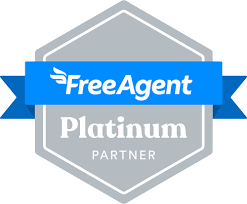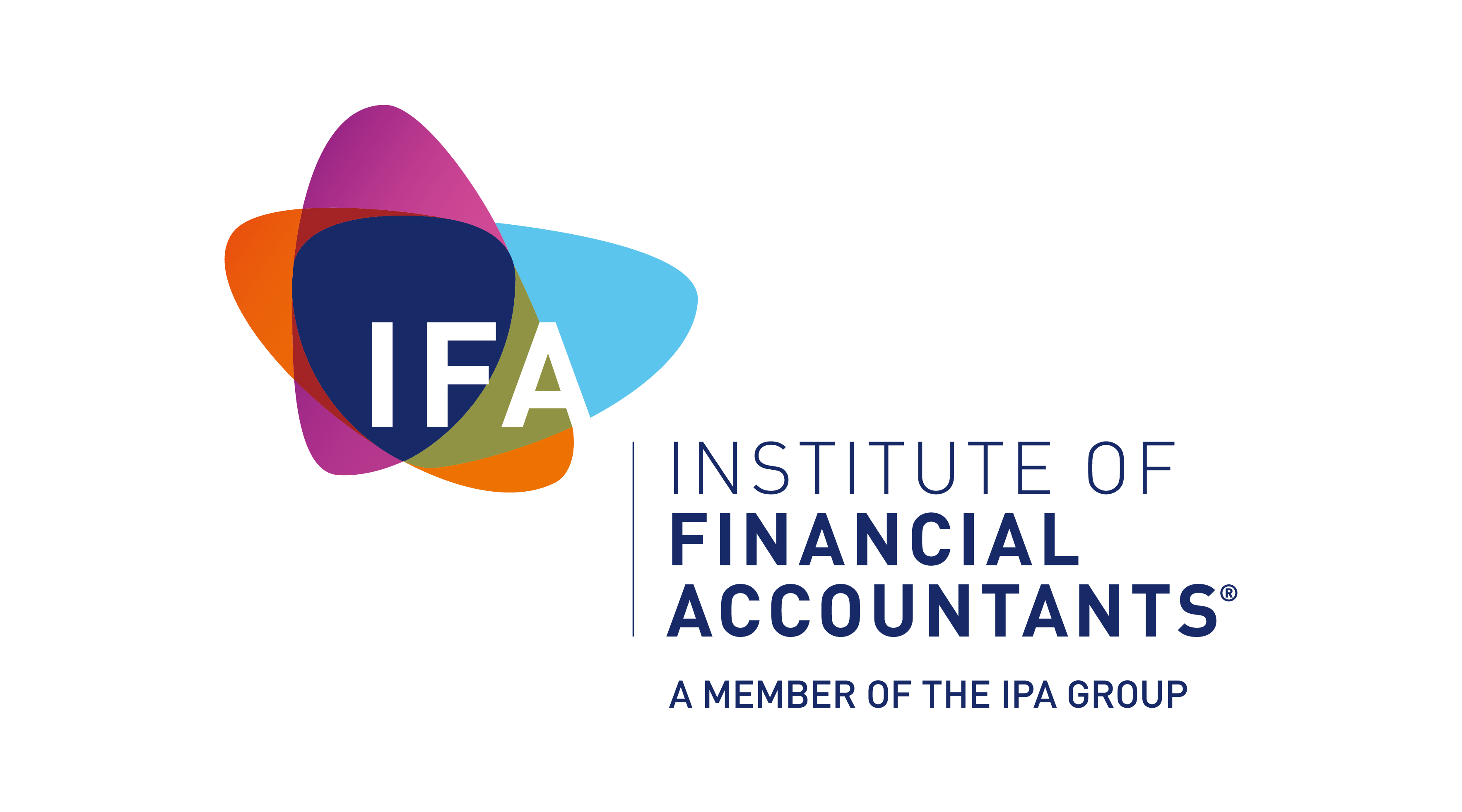Author: Chris Deakin, Director and Accountant at Accrue Accounting
Running your own business as a contractor or freelancer offers a great deal of flexibility, but it also comes with the responsibility of managing your finances effectively. One of the most crucial aspects of this is understanding what business expenses you can claim. This guide is designed to help you navigate the maze of deductible costs, from advertising to Zoom subscriptions, so you can maximize your tax savings while staying compliant with HMRC rules. Whether you’re just starting out or looking to optimize your current setup, this expenses guide will provide clarity on what counts as an allowable business expense and how it can benefit your bottom line.
ALLOWABLE BUSINESS EXPENSES
1. Accountant Fees
Tax Relief on accountant fees:
- Company Accounts: You can claim tax relief for the full cost of preparing company accounts. This includes the preparation of statutory accounts, financial statements, and any other statutory filing requirements and accounting work directly related to the business.
- Personal Tax Returns: If the company pays for your personal tax return, you must report this amount as a taxable benefit. To avoid this, consider having your accountant allocate the cost to your director’s loan account, ensuring it doesn’t count as a taxable benefit.
2. Advertising, PR & Marketing
Tax Relief on Marketing:
- Advertising Costs: Tax relief is available for genuine advertising and marketing expenses such as online ads, print media, and promotional materials.
- Entertaining Clients: Costs such as client lunches may be classified as ‘entertaining’ by HMRC and are not tax-deductible. For example, taking a client out to lunch would fall under this category.
3. Bank Interest & Overdraft Charges
- Business Accounts, Interest and Charges: Tax relief is available for interest payments and charges on business bank accounts and credit cards. This includes interest on loans and overdraft fees incurred to finance business operations.
- Personal Accounts, Interest and Charges: These are not allowable for tax purposes and should not be included in the company’s accounts, even if used for business purposes.
4. Broadband
- Home Broadband, Personal contract: If you work from home and don’t have a separate broadband contract for your business, you can only claim back a business proportion and are not able to claim the full cost. Ensure you calculate the business usage percentage accurately.
- Office Broadband, Separate business Contract: Ensure the broadband contract is in the company’s name. The company can claim tax relief on the full cost of the broadband line rental and business use.
5. Business Use of Home
Business Expenses:
- Variable Utilities: You can claim back from the company the extra costs incurred from working at home, such as additional electricity or gas used for business purposes.
- Fixed Costs: Fixed costs like mortgage and council tax are not claimable for limited companies and only apply to sole traders.
For business use of home costs £6 per week can be claimed as a whole for which HMRC does not require proof. For higher amounts, you must demonstrate how you calculated the business use cost. Accrue Accounting can assist you with doing a use of home calculation, contact us to find out more.
6. Charitable Donations
- Gift Aid Donations:
- Tax Relief: Companies can usually claim tax relief on donations made to UK registered charities for Corporation Tax.
- Other Donations:
- Sponsorships: The company may be able to receive corporation tax relief against sponsorship, but there are complex rules and it is advisable to consult with an accountant for guidance on claiming tax relief.
- Complex Rules: The rules for other donations are more complicated, and it is advisable to consult with an accountant for guidance on claiming tax relief.
7. Clothing
- Work-Related Clothing:
- Protective Clothing: Tax relief is available for necessary protective clothing, such as high-visibility jackets for construction workers or uniforms for nurses.
- Uniforms: If the company provides uniforms that can only be worn at work, these are not taxable benefits. The company must report these costs to HMRC on form P11D, but there’s no extra tax for you or the company to pay.
- Other Clothing:
- Taxable Benefit: Providing other types of clothing not necessary for the job may be considered a taxable benefit. E.g. Suits
8. Computer Equipment, Software and Electronics
- Business and Private Use:
- You can claim tax relief for the cost of the asset and additional national insurance will be determined based on the usage below.
- Taxable Benefit:
- If the company provides equipment for both business and significant private use, it may incur extra National Insurance as a taxable benefit.
- Solely Business Use:
- If equipment is used only for business, with insignificant private use, the company can claim tax relief without extra tax or NI.
- Private Equipment:
- Brought into Business: You can claim tax relief for the market value of equipment brought into the business. Ensure the valuation is accurate and documented.
- Second-hand Equipment:
- Purchased by Company: The company can claim tax relief on second-hand equipment as a capital asset at the purchase cost. However, VAT cannot be reclaimed without a VAT receipt.
- Selling of assets: The company may be liable for corporation tax on the sale of any assets if capital allowances have previously been claimed.
- Telephone:
-
- Home Line: Claim back the business use of your home phone line and a percentage of the line rental only, as no personal element should be claimed. Do not let the company pay the phone bill directly, otherwise this would incur a benefit in kind.
- Office Line: For separate business lines, ensure the contract is in the company’s name. The company can claim tax relief on the full cost.
- Mobile Phone: The company can have a mobile phone contract in the company name and can claim tax relief. There is no taxable benefit for the use of one company mobile phone.
-
- Software subscriptions:
- Business Use: The company can pay for any specific used by the business to perform working duties. So, this could be commonly used products like Microsoft office, Zoom, anti-virus etc.
9. Entertaining
- Entertaining Clients:
- Non-Deductible: Neither you nor the company can claim tax relief for entertaining clients. This includes meals, events, and other entertainment expenses. Although this is not deductible for Corporation Tax there is no personal tax element for using the business funds. VAT cannot be reclaimed back on non-deductible entertainment.
- Entertaining Employees:
- Qualifying Events: For an event to be tax-deductible and not a taxable benefit for employees, it must meet these criteria:
- Annual Event: The event must be held annually, such as a Christmas party.
- Open to All Staff: It must be available to all employees.
- Cost Limit: The combined annual cost must be less than or equal to £150 per guest.
- If any of these conditions are not met, the event becomes a taxable benefit.
- Qualifying Events: For an event to be tax-deductible and not a taxable benefit for employees, it must meet these criteria:
10. Travel and Accommodation
- Flights and Train Tickets:
- Business Journeys: Tax relief is available for travel between business appointments or to/from a temporary workplace. Temporary workplaces are those where you work less than 40% of your time over 24 months.
- Permanent Workplace: Travel from home to a permanent workplace is not eligible for tax relief.
- Hotel Accommodation:
- Business Purposes: Tax relief is available for accommodation when staying away from home for business, attending business appointments, or at a temporary workplace.
- Food and Drink:
- Whilst on business Travel: You can claim food and drink costs incurred while travelling for business purposes. The 24 Month rule applies when claiming in relation to travelling to a client’s site.
- Tolls and Car Parking:
- Business Travel: Claim back tolls and parking costs incurred during business travel. These are tax-deductible expenses.
11. Professional Fees
- Allowable Fees: The company can claim tax relief for business-related professional fees and subscriptions to professional bodies on HMRC’s list.
- Legal Fees: Legal fees relating to the purchase of capital items are not considered business expenses relating to trade and are generally not allowable for a tax deduction.
- Other Legal Fees: Not all legal fees will be allowable for a tax relief and will be subject to the nature of the legal work. Your accountant would be able to advise further.
12. Miscellaneous Business Expenses
- Gifts:
- Employees: Trivial benefits/gifts can be given to employees and office holders up to providing the total cost does not exceed £50, it is not cash or a cash voucher (one that can be exchanged for cash), it is not a reward for the performance of an employee or recognition for their service, and is not included in their terms of contract. There is a cap of £300 per person, per tax year for close companies. (A close company is one that is controlled by less than 5 shareholders/directors)
- Non-Employees: Tax relief is available for certain business gifts, provided they are not food, drink, tobacco, or vouchers and cost less than £50 per recipient per year and it has to carry some form of branding/advertisement on the actual gift and not just on the packaging.
- Stationery:
- Business Use: The company can pay for stationery costs used for business without it being a taxable benefit.
- Training and Personal Development:
- Staff Training: Tax relief is available for training costs if the training is wholly and exclusively for the business. So generally enhancing or improving current skills. Any training not related to the business activities would have further tax implications.
For personalised guidance and support on managing your business expenses, reach out to Chris Deakin at Accrue Accounting. We are here to help you understand your expense options and ensure compliance with HMRC regulations.




